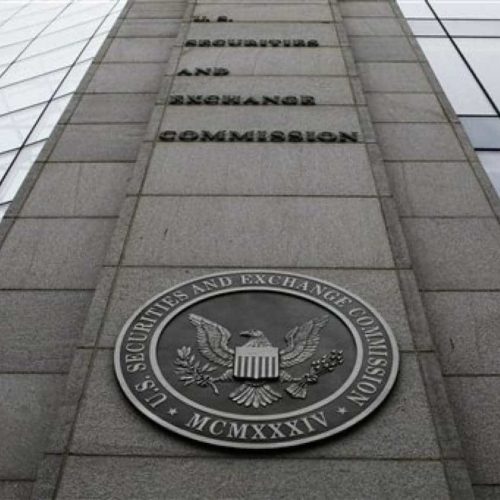Introduction
Corporate America isn’t conceding defeat even after U.S. securities regulators passed new rules that will smooth the way for corporate whistleblowers to collect cash rewards for reporting financial frauds.
Whistleblower advocates’ celebration after the May 25 decision might be short lived as companies keep fighting the new whistleblower rules on a variety of fronts – in the courts, in Congress, and inside companies’ own internal compliance systems, corporate attorneys and whistleblower advocates say.
One potential tactic: Requiring all corporate employees to sign statements that say their job descriptions include reporting suspected fraud, a requirement that in many instances would disqualify them from sharing in financial settlements collected by the federal Securities and Exchange Commission.
Another possible line of attack: Squeezing the SEC’s funding so it won’t have the resources to make its new whistleblower initiative a success.
Michael Volkov, a former federal prosecutor who now works as a corporate defense attorney, says companies and their allies won’t get very far challenging the SEC’s whistleblower bounty and protection program in Congress or in a frontal legal assault.
Instead, “their best strategy is to strangle it” by attacking the SEC’s budget, Volkov told iWatch News.
Earlier this year, House Republicans opposed to much of the Dodd-Frank corporate reform law sought to freeze or cut the SEC’s budget. Rep. Scott Garrett, chairman of the House subcommittee on capital markets, said the agency was bloated and pushed to cut its budget by nearly 20 percent. The Obama administration and its allies beat back such moves and secured a 7 percent bump, increasing the agency’s annual budget to $1.185 billion.
While that was a victory for the SEC given the political playing field, that was roughly half the increase sought by Obama, and it represented a modest hike for an enforcement agency whose budget is dwarfed by the resources available to the companies it polices.
JPMorgan Chase and Co.’s litigation reserves were some $4 billion in 2010 – or as Forbes has pointed out, an amount nearly four times “what the SEC has to regulate the entire securities industry.”
Without enough funding and staff to investigate complaints, whistleblower attorneys say, the agency will be hard-pressed to make much use of the large volume of tips expected to come in from corporate insiders who want to apply for cash bounties that are available for employees who provide the agency with information that results in financial settlements.
Under the Dodd-Frank financial reform law, some whistleblowers will be eligible to receive between 10 percent and 30 percent of settlements of $1 million or more the SEC collects in criminal or civil cases. In rules approved last month, the SEC spelled out in detail how whistleblowers seeking the bounties should file complaints and when they may qualify for the awards.
The rulemaking was the subject of intense lobbying by whistleblower advocates and corporate representatives. Now that the rules are in place, though, it’s clear that the heated battle over them isn’t going to end. The U.S. Chamber of Commerce and other business groups will keep fighting to limit the impact of Dodd-Frank’s whistleblower provisions and the SEC rules, whistleblower advocates say.
“This is one of the things that groups like the Chamber will rally around,” says Reuben Guttman, a Washington, D.C., whistleblower attorney. “It’s one of the things that the Chamber will make a cause celebre.”
Chamber of Commerce officials have said that “the SEC has chosen to put trial lawyer profits ahead of effective compliance and corporate governance” by allowing workers to come directly to SEC with fraud reports, rather than requiring that they first go through their employers’ internal compliance programs.
In March, the Chamber indicated it would consider going to court to try to block the whistleblower regulations if the SEC didn’t address companies’ concerns about the rules. “We’re going to keep all of our options open,” Tom Quaadman, the vice president of the Chamber’s Center for Capital Markets Competitiveness, told Reuters.
Chamber officials didn’t respond to questions from iWatch News about whether the organization was considering a legal challenge to the whistleblower rules. The Chamber and another group, the Business Roundtable, are currently pushing a lawsuit aimed at blocking another set of SEC rules, which provide shareholders greater say in nominating candidates for company’s board of directors.
On the legislative front, battle lines are already forming. Some House Republicans support reversing many of the whistleblower-protection provisions in the Dodd-Frank Act.
Rep. Michael Grimm, a New York Republican who is the sponsor of the draft legislation, says he wants to rescind provisions of Dodd-Frank that “open the floodgates to frivolous claims and costly penalties by allowing whistleblowers to go directly to the SEC.”
Whistleblower advocates say Grimm’s proposal would force whistleblowers to “inform corporate wrongdoers that they are violating the law before contacting law enforcement, giving the wrongdoers the opportunity to hide their misconduct from investors.”
Year of the Whistleblower
Less than a decade ago, hopes were high that whistleblowers could turn the tide in the fight against corporate fraud.
In the wake of revelations about accounting crimes at Enron Corp. and other big companies, BusinessWeek hailed 2002 as the Year of Whistleblower. Time named Enron whistleblower Sherron Watkins one of its persons of the year. The Sarbanes-Oxley Act, approved by Congress in July 2002, included tough safeguards for workers who blew the whistle on misconduct inside publicly traded companies.
Things didn’t work out the way whistleblower advocates had hoped.
Few whistleblowers won safe harbor under Sarbanes-Oxley’s (SarbOx) whistleblower protections. In roughly the first eight years after Sarbox passed, iWatch News reported, the U.S. Occupational Safety and Health Administration upheld 25 whistleblower claims under the act, and dismissed more than 1,000 claims.
Democratic Sen. Patrick Leahy of Vermont, co-author of the SarbOx whistleblower provisions, said he was concerned the law “resulted in very little actual protection for the men and women who risk their careers to step forward.” Workers’ rights advocates say that decisions by OSHA and administrative law judges created arduous obstacle courses for workers seeking whistleblower status.
Current OSHA chief David Michaels, an Obama appointee, has noted that, during the home-loan frenzy, few insiders stepped forward with revelations about mortgage fraud and Wall Street shell games that helped crash the financial system.
The Dodd-Frank Act seeks to improve on Sarbanes-Oxley and reverse decisions by bureaucrats and judges that weakened SarbOx’s whistleblower protections. For example, Dodd-Frank specifies that employees of privately-held subsidiaries of publicly-traded companies are covered by Sarbox whistleblower provisions. Previously, decisions by OSHA and federal judges had made it difficult for employees of privately-owned subsidiaries of public companies to seek protection.
But will the Dodd-Frank whistleblower protections succeed where SarbOx whistleblower protections failed? It’s a question that worries whistleblower advocates who know that passing laws and rules are one thing, but making them work in the real world are another thing all together.
“These laws look good on paper, but in the real world it requires a tremendous amount of courage to risk being blackballed in your chosen industry forever so that you can report fraud,” says Max Kennerly, a Philadelphia whistleblower attorney.
Whistleblower attorneys say that the lure of cash rewards may increase the number of workers who are willing to risk their livelihoods by coming to the SEC with information about accounting fraud and other misconduct.
They note that similar cash “bounties” have helped return billions of dollars to the U.S. Treasury over the past quarter century through the federal False Claims Act, which allows whistleblowers to file lawsuits against aerospace companies, health-care corporations and other government contractors. If the case is proven, the government can collect repayment, and the whistleblower is entitled to a slice of the settlement.
For their part, corporate defense attorneys worry that the new SEC bounty program will create serious headaches for companies that already have systems in place for rooting out fraud.
“People are worried about this, and justifiably so,” Volkov, who writes the White Collar Defense & Compliance Blog, said. With more whistleblowers going directly to the government rather than reporting internally, “you have less control. Your costs go up. And your internal compliance program is going to be less effective.”
Zach Fardon and Eric Swibel, attorneys at Latham & Watkins, a large U.S. law firm that represents corporations, write that a company may conduct a diligent internal investigation and “dot every i and cross every t, yet still see an employee preserve bounty rights by rushing to the SEC before the company has an opportunity to determine the legitimacy and scope of a possible compliance issue.”
At the same time, they say, a growing number of questionable complaints prompted by “the Dodd-Frank paradigm” may lead the SEC “to chase many more rabbits down dead-end holes.”
‘A sea of irrelevant data’
The disagreements between whistleblower lawyers and corporate defense attorneys foreshadow what is likely to be could be years of trench warfare over the rules.
One issue that may get attention from lawyers on both sides is SEC language that mostly excludes accountants and internal compliance employees from qualifying for whistleblower awards. (They could qualify for a bounty, though, if they can show the company is impeding investigation of wrongdoing.)
Jason Zuckerman, a Washington, D.C., whistleblower attorney, says companies that want to limit the number of employees who could qualify as whistleblowers might, for example, “force all employees to sign a disingenuous policy statement acknowledging that every employee’s job duty includes reporting and investigating fraud or other SEC violations.”
Zuckerman says that while he doesn’t know of any specific companies that have taken that step, he has heard from corporate attorneys who plan to recommend having employees sign such statements.
In the past, he notes, companies and their advocates were so successful in narrowing the definition of who qualified as a whistleblower under Sarbanes-Oxley that many whistleblower attorneys hesitated to make make claims under the law.
Kennerly, the Philadelphia whistleblower attorney, says companies may also try to knock out whistleblower claims by using Dodd-Frank’s requirement that the employee provide “original information” not derived from publicly available sources.
He notes that “a number of researchers have argued that the information revealing Enron’s fraud was publicly available, but only in a fragmented, confusing manner, with a few pieces of relevant information lost in a sea of irrelevant data.” Whistleblowers who take the time to put the pieces of such puzzles together, he says, won’t be entitled to an award under these rules.
And even if they learned of fraud internally, Kennerly says, their employers might still try to invoke the “original information” requirement, sending the whistleblower “on a wild goose chase trying to prove a negative fact, i.e., the fact that they didn’t rely on publicly available information in preparing their disclosure to the SEC.”
Volkov, the corporate defense attorney, agrees that who’s allowed to claim whistleblower bounties and what really represents “original information” will be two of the most hotly contested issues over the next couple of years.
“There’s definitely going to be litigation about the application of the rules to the real world,” he said.
Read more in Inequality, Opportunity and Poverty
State Integrity 2012
State Integrity Investigation highlighted ethics problems plaguing Virginia and its governor
Financial Reform Watch
New Jersey: Best score in the country
With a B+, the Garden State receives the highest score in the U.S., an 87


Join the conversation
Show Comments